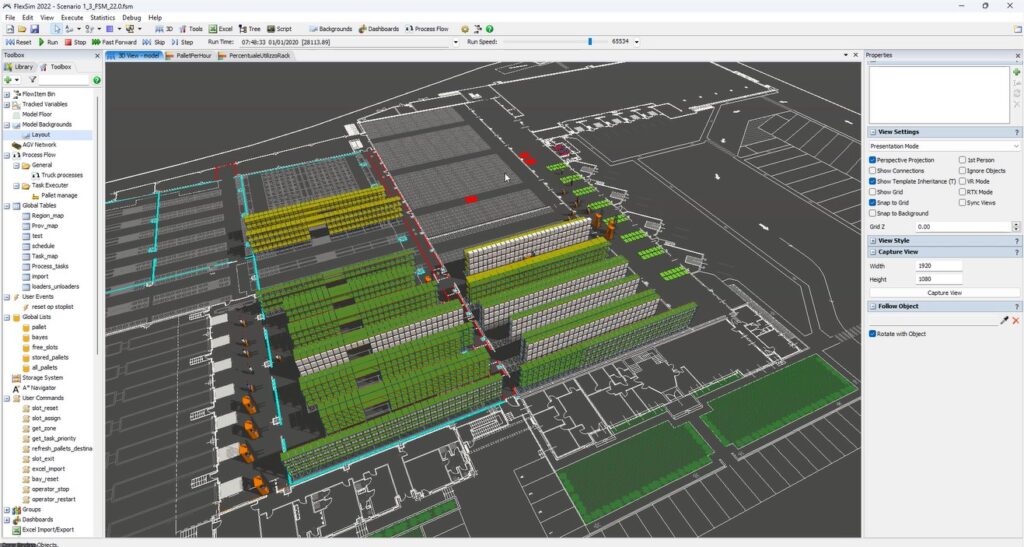Industrial sustainability: the Lean & Green approach for logistics and manufacturing
The concept of “Lean & Green” represents a synergy between operational efficiency and environmental sustainability, crucial elements for logistics, warehousing, and manufacturing companies. “Lean,” derived from Lean Management philosophy, focuses on waste reduction and process optimization. “Green” emphasizes the commitment to reducing environmental impact and adopting sustainable practices. This integrated approach offers a winning strategy that not only enhances operational efficiency but also environmental sustainability, providing tangible benefits both in the short and long term.
Origins and development of Lean & Green
The Lean & Green program was launched in the Netherlands in 2008 by the Ministry of Infrastructure and the Environment and implemented by the Connekt network. In Italy, the FLC adopted the program, involving over 500 companies in nine European countries. The goal is to reduce CO2 emissions in the logistics and production sectors by promoting practices that optimize efficiency and reduce environmental impact.
How to adopt the Lean & Green approach
Logistics, warehousing, and manufacturing companies can implement various strategies to improve operational efficiency and sustainability:
- Targeted machinery purchases
Investing in modern, technologically advanced machinery is essential to reduce emissions and increase efficiency. New machinery, in addition to being more energy-efficient, often incorporates technologies that reduce waste and optimize production processes. This initial investment translates into significant long-term operational cost savings.
- Optimization of asset usage
Optimal management of company assets, such as vehicles, machinery, and infrastructure, is essential to reduce waste and improve efficiency. Adopting advanced monitoring systems and asset management software allows better maintenance planning, reducing downtime and extending the useful life of assets.
- Waste reduction and cost reduction
Adopting Lean practices helps identify and reduce waste in all stages of the production process. This includes reducing inventory, optimizing production processes, and minimizing scrap. Waste reduction directly translates into lower operating costs and increased productivity.
- Improved factory or warehouse layout
A well-designed factory or warehouse layout is crucial to improving operational efficiency and reducing environmental impact. This involves optimizing workflow, reducing internal transport times, and eliminating unused storage areas. An efficient layout contributes to a safer and more productive work environment.
- Staff training and continuous improvement
Staff training is a key element for the effective implementation of Lean & Green practices. Employees must be aware of waste reduction techniques and sustainable practices. Continuous improvement, based on the Kaizen philosophy, ensures that companies remain flexible and able to quickly adapt to market changes.
The benefits of lean and green for enterprises
Adopting the Lean & Green approach offers numerous benefits for logistics, warehousing, and manufacturing companies:
- Increased productivity: Optimizing production processes and reducing waste allows for increased productivity without raising costs.
- Cost reduction: Targeted investments in efficient machinery and advanced technologies reduce long-term operating costs.
- Improved sustainability: Reducing environmental impact not only improves the company’s image but also meets growing consumer and regulatory expectations.
- Competitive advantage: Companies that adopt sustainable practices can differentiate themselves from competitors, attracting customers sensitive to environmental issues.
Flexibility through simulation
Flexcon offers advanced 3D simulation solutions that allow companies to test and validate operational changes before implementing them. This tool is crucial for maintaining business flexibility. Simulations enable companies to foresee the effects of production changes or capacity increases, facilitating adaptation to market and customer demands.
With simulation, companies can explore change and optimization scenarios without risks, making the right adjustments to ensure that the factory or warehouse is always ready to adapt. This means companies can quickly respond to customer and contract requests, maintaining high levels of efficiency and productivity.
The Flexcon Approach
Adopting the Lean & Green approach not only improves the operational efficiency of logistics and manufacturing companies but also creates a positive environmental impact. By reducing waste and optimizing resource use, companies can benefit from cost reductions and a better market reputation.
Flexcon, with its advanced 3D simulations, helps companies implement these methodologies, analyzing and optimizing production processes to ensure a more sustainable and competitive future. Simulation allows companies to foresee the effects of operational changes, facilitating the transition to a Lean & Green business model, maximizing production and revenue, and ensuring a flexible company ready to face market challenges.

Contact Flexcon: learn more about our Simulation Solution.
